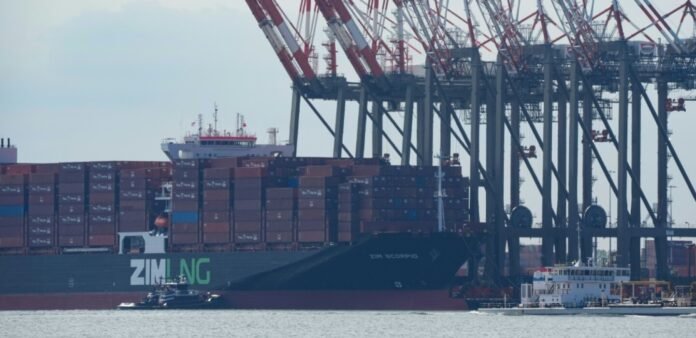Because tariffs are no longer a dirty word in Washington: Vice President Kamala Harris, the Democratic nominee, is part of an administration that has retained those imposed by former President Donald Trump on Chinese products and even added more targeted ones. As for the Republican candidate, he has already announced at least 10% tariffs on all imports and even up to 60% on those coming from China.
But for entrepreneurs like Robert Actis, above all, this complicates things. Since 2020, and the introduction of tariffs on imports of steel and aluminum, the latter has had an increasingly difficult time finding suppliers of raw materials, and the recent measures of President Joe Biden have not solved anything. “I would be happy to buy American, but no one can do that,” he says, referring to the grid for the construction sector that he has to import.
Labor shortage. If he has been able to benefit from duty exemptions until now, they must be renewed annually without guarantee, additional costs he says have gradually pushed up his prices. And many industries are affected: The American Apparel Association (AAFA) has estimated that retail prices have increased annually by 5 to 10% since 2020.
“In the beginning, our members reduced their margins”, but the difficulties in the sector no longer allow it, emphasizes the vice president of the AAFA, Nate Herman. And the tariff does not necessarily benefit the local industry: 14 textile factories have closed down in recent years, and some products are no longer manufactured locally due to a lack of skilled labor and machinery. “The average age in American factories has risen to about 50 because we can’t recruit younger people,” insists Mr. Herman.
Above all, they represent “millions of dollars for small businesses like us,” insists Ray Sharrah, general manager of lighting fixtures manufacturer Streamlight, “we have to pay for it and ultimately it goes to the consumer, that’s the problem. n ‘any tariff’ The approach to the election, on November 5, amplifies entrepreneurs’ worst nightmare: uncertainty.
“Moderating effect”. According to a survey conducted by the Richmond branch of the Federal Reserve (Fed) in particular, 30% of companies announce that they are postponing, reducing or even canceling planned investments because of the election. “This slows down our actions, our investments and generally creates a moderating effect on economic development as a whole,” Mr Sharrah points out.
Together with his partners, he is trying to repatriate the manufacturing of an essential component to the US, but “the time we spend working on our supply chains comes at the expense of the development of our business”. And it is not easy to find new sources of supply, emphasizes AAFA, which expects to see companies importing more to have stocks before a possible increase in the tariff, as in 2018.
Regardless of the outcome of the vote, the companies expect the customs duty to be maintained. “There is no chance that one of the camps will leave them,” believes Mr. Actis, “the movement will be on the rise.”
“Emotions”. For the head of Colonial Metal Products, Will Thomas, companies can’t do much about it because “candidates play on emotions. But if the products are no longer available and you just increase the cost of production, then what happens? Inflation is coming back. “
“I’m not against tariffs as long as there’s a project or support to help companies bring production back, but on this point I haven’t heard anything,” laments his side Colby McLaughlin, head of Trim Illusion, importer of car parts. He is torn between his perspectives as an entrepreneur and his vision as a citizen. Meanwhile, it plans to strengthen its investments to accelerate its revenues.
Beiyi SEOW
© Agence France-Presse
